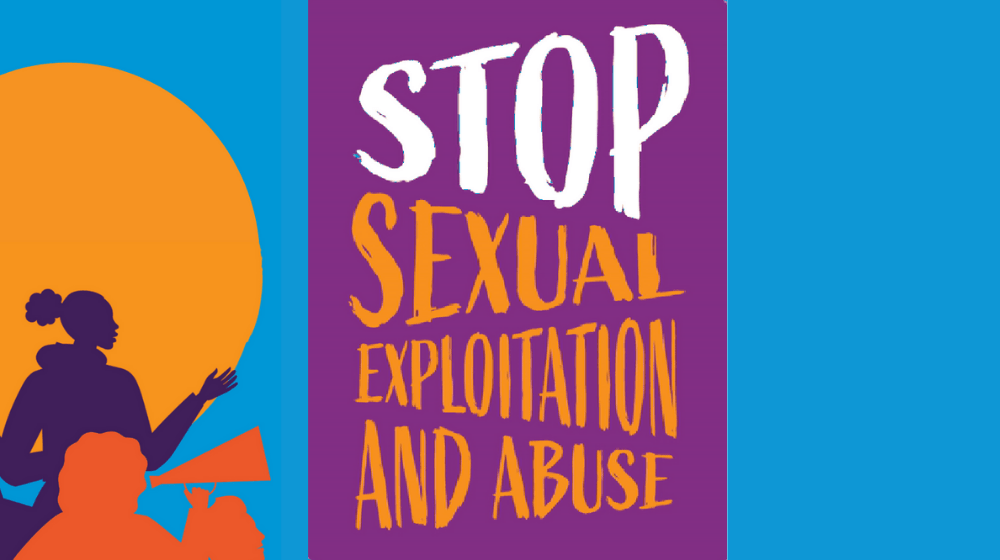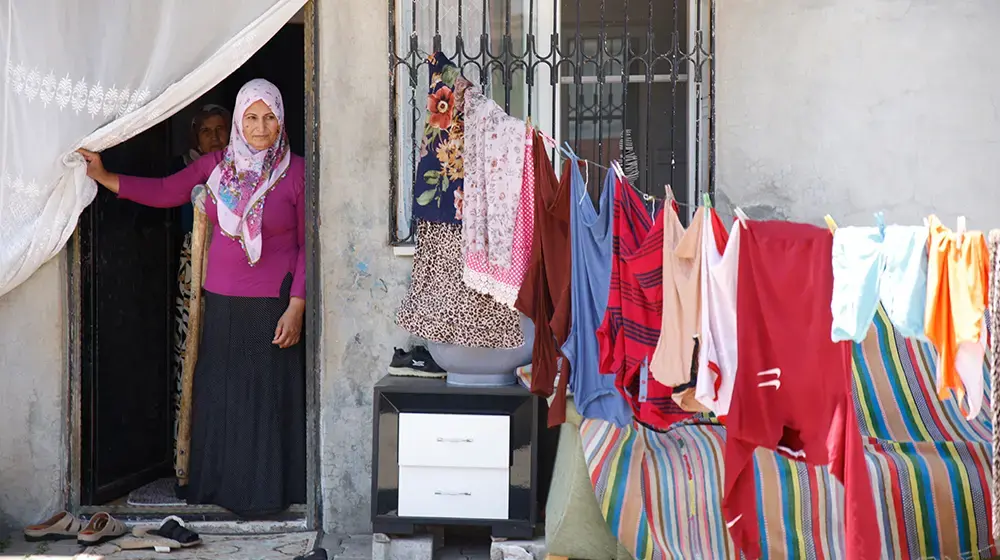Let's all be champions of protection and place the rights and dignity of victims and survivors at the heart of our efforts.
Dr. Natalia Kanem, UNFPA Executive Director
What is Sexual Exploitation and Abuse?
Sexual Exploitation and Abuse is a form of violence and it constitutes an abuse of power by humanitarian aid workers and other actors engaged in assisting their affected population. Sexual exploitation and abuse are a violation of human rights and constitute acts of gross misconduct.
More specifically, sexual exploitation is defined as an actual or attempted abuse of someone’s position of vulnerability, differential power or trust, to obtain sexual favours, including but not only, by offering money or other social, economic or political advantages.
An example of sexual exploitation can be when the staff of an international organization or an affiliated NGO ask their beneficiaries to have sex with them in exchange for some services or a job promise at the organization.
Sexual abuse means the actual or threatened physical intrusion of a sexual nature, whether by force or under unequal or coercive conditions.
An example of sexual abuse can be when the staff of an international organization or an affiliated NGO deceives a female refugee, takes her to a deserted place, rapes her, and then, if the survivor reports the situation to the authorities, threatens to ruin her reputation.
What is Protection from Sexual Exploitation and Abuse?
The term Protection from Sexual Exploitation and Abuse is used by the humanitarian staff (UN and NGO community) to refer to measures taken to protect vulnerable individuals, including the beneficiaries, from sexual exploitation and abuse by the staff and associated personnel, and to ensure adequate response when such abuses occur.
UNFPA’s Response
UNFPA is strongly committed to tackling all forms of sexual violence, sexual exploitation and abuse and harassment, both against people served and people who serve within the organization. This is the top priority for UNFPA globally.
UNFPA’s vision is to cultivate an organizational culture of care that nurtures a safe, trusted, respectful and inclusive environment, where the rights and dignity of UNFPA personnel and the people and communities we serve are recognized, promoted and protected, and all feel empowered to speak up for themselves and others and take appropriate action to prevent and respond to all forms of sexual exploitation and abuse.
UNFPA has zero tolerance for all forms of sexual wrongdoing, whether perpetrated against a recipient of assistance or a coworker. Sexual exploitation and abuse and sexual harassment violate human rights and are a betrayal of the core values of the United Nations. The interests and dignity of those affected guide UNFPA’s approach to prevention, response and assistance.
You Are Not Alone!
UNFPA considers even a single case of sexual exploitation and abuse as too many and follows a zero-tolerance policy against any form of sexual violence.
UNFPA has institutional experience in responding to gender-based violence, hence ensuring access to quality assistance for victims of sexual exploitation and abuse is one of our core priorities. In collaboration with its partners, UNFPA offers crucial assistance and support to victims.
If you are aware of or have concerns or doubts about a potential case of sexual exploitation and abuse by UNFPA staff, a UN or NGO staff, or a contractor, you may report and make a complaint to us in any of the ways listed below. In this process, please remember that your complaints are kept confidential and the information you report will not be shared with others without your consent.
investigationshotline@unfpa.org (You can report in Arabic, Chinese, English, French, Russian and Spanish)
psea.turkey@unfpa.org (You can report in Turkish in addition to the 5 languages above)
Online Reporting Form
https://web2.unfpa.org/help/hotline.cfm
Fax
+1 (212) 297 4938
Voice Message
+1 (212) 297 5200
When making a complaint, please write your report by giving the details about what happened and/or what you know about the events, including information about who is the person attempting to misconduct and, if any, other persons involved in this incident, specifying the name-surname, job and organization of the person(s) if possible, and by adding the day and time of the incident, if possible. Complaints can be made anonymously; however, if you choose to make an anonymous complaint, please make sure that you include all details about the incident in your report.
To learn more about our Zero Tolerance Policy, listen to our Executive Director Natalia Kanem’s message!
UNFPA Executive Director Zero Tolerance Message



